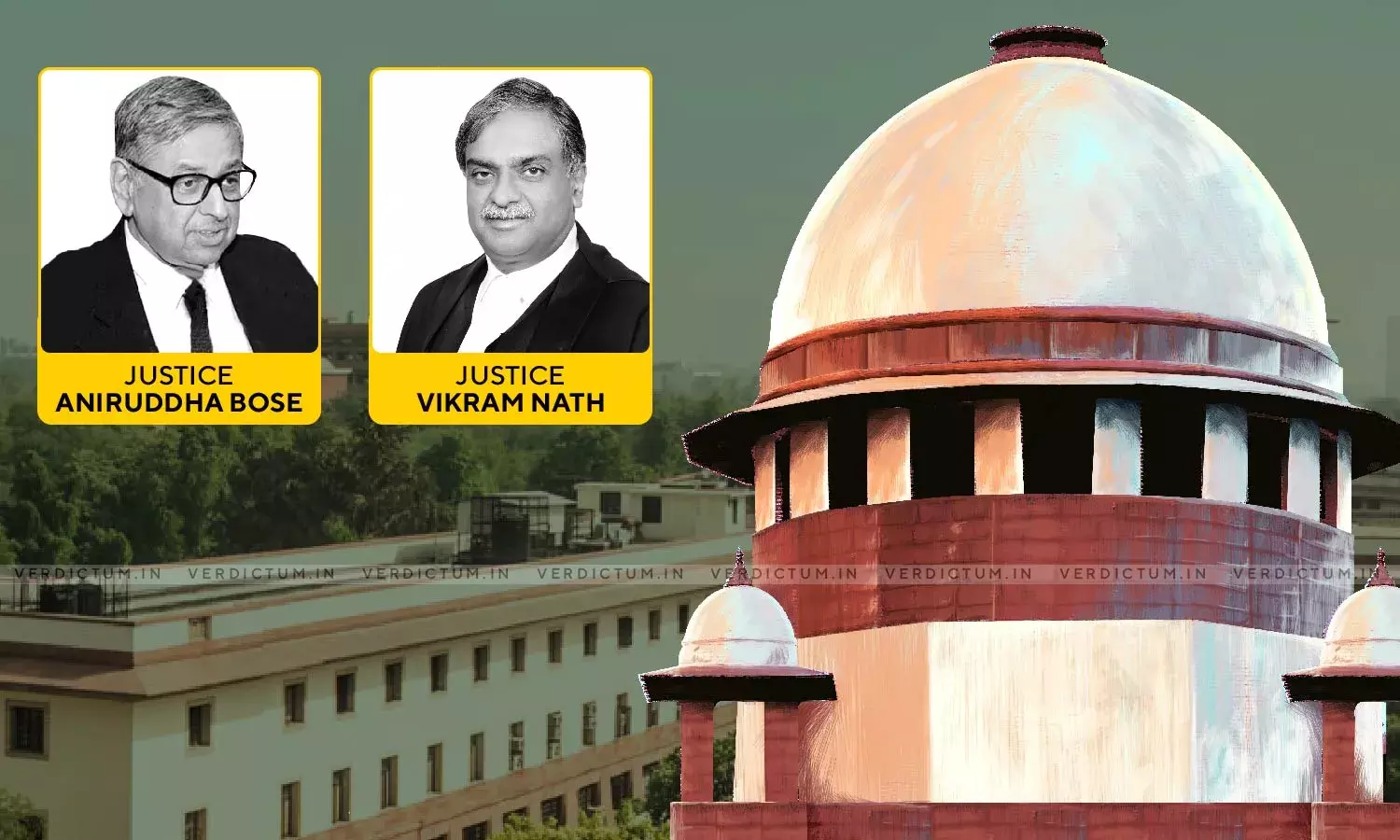SC Sets Aside NCDRC's Order Awarding ₹2 Crore Compensation To A Model For Faulty Hair Cut At Hotel Salon In 2018

The Supreme Court has set aside NCDRC's order awarding Rs. 2 Crore compensation to a model for a faulty haircut at a hotel salon in 2018.
The Court observed that while quantifying the amount of compensation no reference to or discussion on any material evidence was made by the National Consumer Disputes Redressal Commission (NCDRC) and had set aside the order of NCDRC wherein compensation of Rs. 2 crores was awarded to the respondent for loss of income, mental breakdown and trauma, due to deficiency in service and damage caused to her hair.
The Bench of Justice Aniruddha Bose and Justice Vikram Nath observed that “What could be quantified was compensation under the head of pain, suffering and trauma. However, amount of Rs. 2 Crores would be extremely excessive and disproportionate. This Court, therefore, is of the view that the NCDRC fell in error by awarding compensation to the tune of Rs.2 crores without there being any material to substantiate and support the same or which could have helped the NCDRC to quantify the compensation.”
Senior Advocates K.V. Viswanathan and Debal Kumar Banerji appeared for the appellant-ITC Limited and the respondent appeared in-person.
In this case, appeal was preferred under Section 23 of the Consumer Protection Act, 1986 assailing the order passed by the NCDRC wherein the complaint of the respondent was allowed and appellant was directed to give compensation of Rs. 2 crores to the respondent.
The respondent was a model for hair products by profession. She had visited the saloon of the Hotel ITC Maurya, New Delhi for haircut. But the length of the hair had been shortened contrary to her instructions. And in order to mend the wrong, the respondent was offered hair extension services. During hair extension services, further damage was caused to her hair.
The respondents made several complaints to the Manager of ITC Group of Hotels but was an exercise in futility. Thereafter, the respondent approached the NCDRC.
The Apex Court said that perusing the material on record and the evidences led by the respondent, the NCDRC correctly concluded that there was deficiency in service. But there had been no reference to or discussion on any material evidence to quantify the compensation.
Therefore, the question before the Apex Court was that, on account of such deficiency in service, what would be an adequate compensation taking into consideration the various claims made by the respondent, either under different heads or a lump sum amount.
The Apex Court noted that even after repeated requests the respondent had failed to demonstrate her expected loss from the record placed before the NCDRC, with respect to her present job at the time when she undertook the hair styling, her advertising and modelling assignments in the past, present and future agreements or contracts with any of the brands.
“In the absence of any material with regard to her existing job, the emoluments received by her, any past, present or future assignments in modeling which the respondent was likely to get..., it would be difficult to quantify or assess the compensation under these heads.” said the Apex Court.
The Apex Court further remarked that “The NCDRC discussed regarding the importance of hair in a woman’s life and also that it could be an asset for building a career in modelling and advertising industry but then quantification of compensation has to be based upon material evidence and not on the mere asking.”
The Apex remitted the case back to the NCDRC and opportunity be given to the respondent to lead evidence with respect to her claim of Rs.3 crores and said that “In case such evidence is led then adequate right of rebuttal be given to the appellant. The NCDRC may thereafter take a fresh decision in accordance with the material that may be placed on record on the issue of quantification of compensation.”
Accordingly, the appeal was allowed with directions to NCDRC to pass appropriate orders with respect to the said amount.
Cause Title- ITC Limited v. Aashna Roy
Click here to read/download the Judgment

